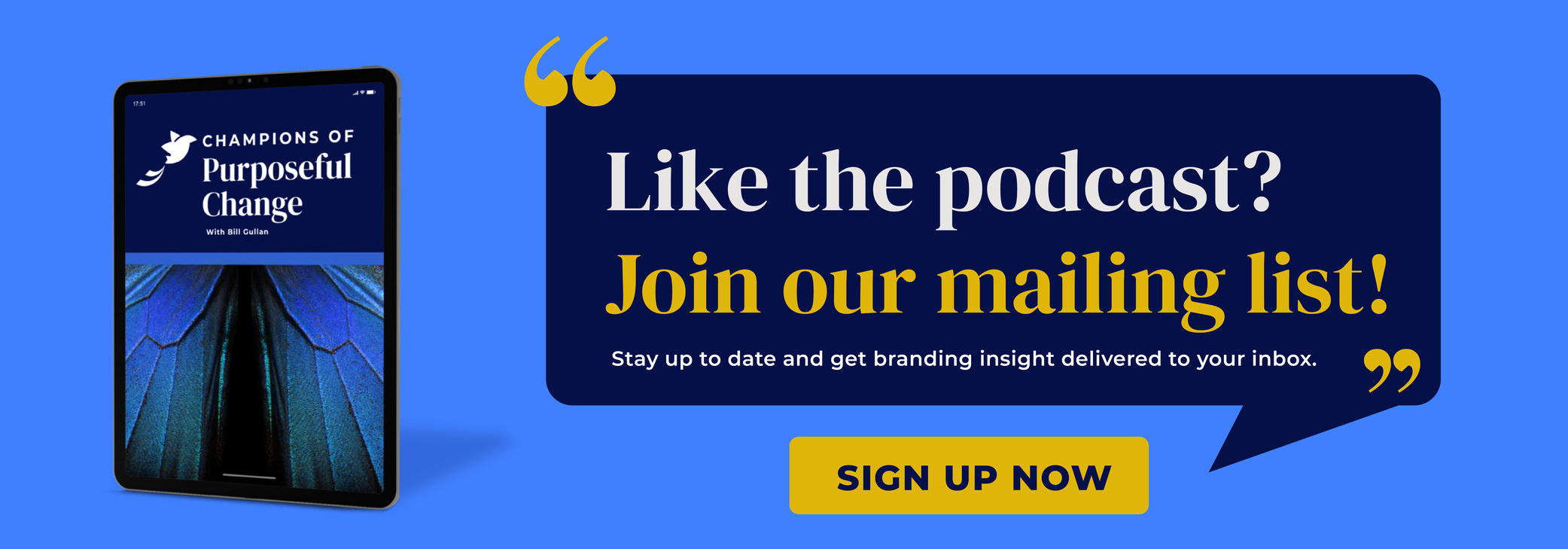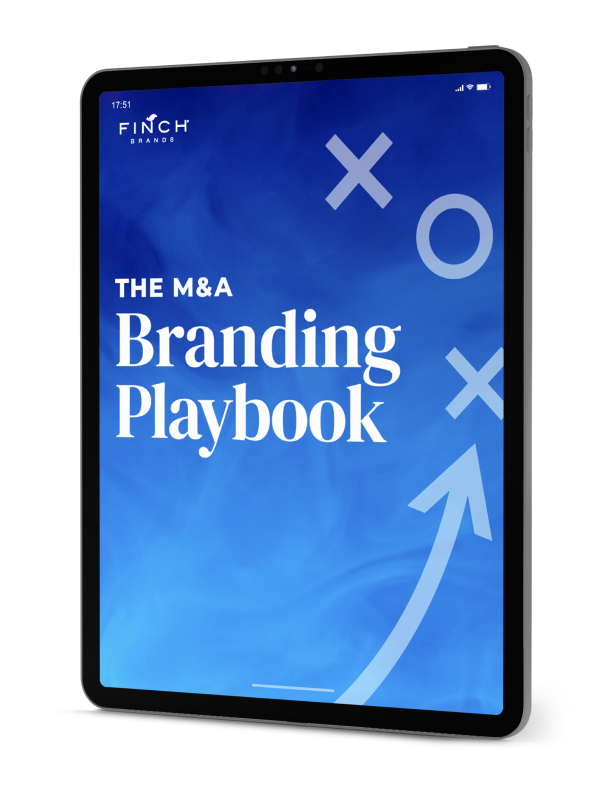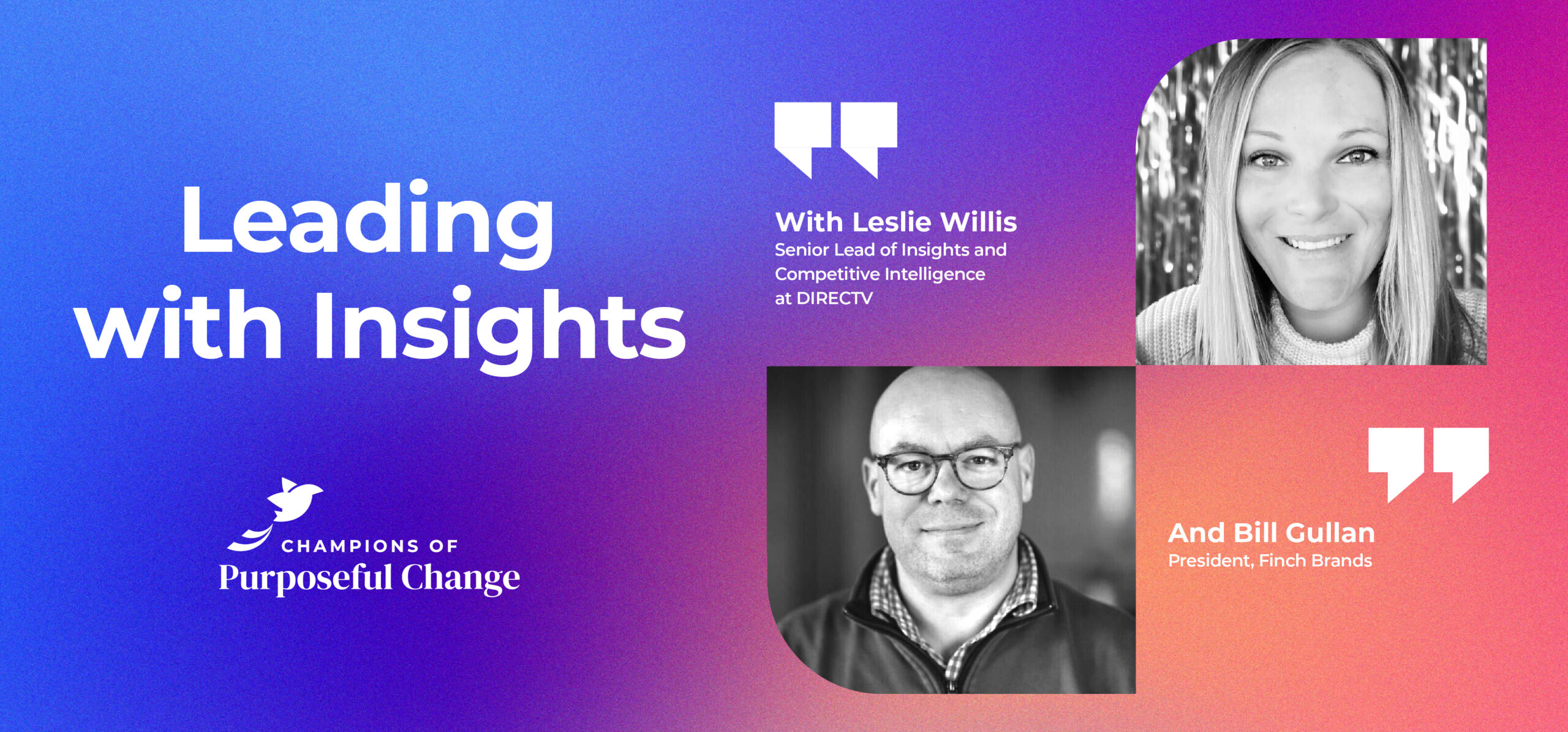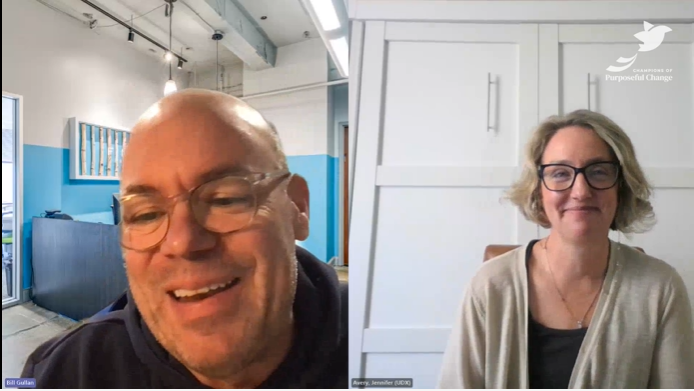The Power of People – Ken Langone, Co-Founder of Home Depot

Ken Langone, icon and philanthropist, is best known for co-founding Home Depot and he joins us today for episode 100 of the Real-World Branding Podcast. Ken shares his insights on why relationships matter and why he sees his recent memoir, ‘I Love Capitalism,’ as particularly important now. If you like our podcast, please subscribe and leave us a rating!
Podcast: Download Subscribe: iTunes | RSS Transcription:
Bill Gullan: Greetings, one and all. This is Real World Branding. I’m Bill Gullan, president of Finch Brands, a premiere boutique brand consultancy, and this is our 100th, everybody. We weren’t really tracking these, we weren’t checking off boxes on the wall or something, but all of a sudden you look up and you’re 99 episodes in and I know our timing’s been a little bit intermittent, but we’re back and we’re committed to doing this at least every other week. We thought we would bring you something special for our 100th episode. We’re grateful that we did.
Bill: Ken Langone, who’s a legend of American business, co-founder of Home Depot, prodigious philanthropist, political commentator, too, joins us here. Ken’s written a new book, newish book, in 2018, his memoir, an American story, but it’s called “I Love Capitalism.” What we go through, we’re so grateful for Ken’s time and input. We go through some of the key inflection points in his career, some of the things that were behind the scenes as he and Bernie Marcus and Arthur Blank co-founded Home Depot, what they were thinking, what was important to them, as well as general lessons from Ken’s career.
Bill: Then we proceed into his full-throated defense of capitalism, the title of his book, something he believes in very strongly. I can tell you, we’re not ideological on Real World Branding, but we do believe in markets and we do believe in choice. Ken is a very forceful advocate for the system that he believes has catalyzed not only his own incredible journey, but the overall success of the American economy and nation. Special treat, Episode 100, Ken Langone.
Bill: We’re here on Real World Branding with Ken Langone, the chairman, founder and CEO of Invemed, a legend in American business. Ken, thank you so much for your time and insight.
Ken: Thank you for having me.
Bill: It’s our pleasure. Obviously you’re known for many successes, especially for the co-founding of Home Depot.
Ken: Oh, I’ve had a lot of failures, too.
Bill: Well, everybody does. This is hard-earned. Reading this book that you’ve written has been a revelation. It’s called “I Love Capitalism: An American Story,” a characteristically understated title. We’d love to get into some of it: the Home Depot story, your philanthropic footprint, everything else. The book’s full of colorful personalities and great stories. We won’t ask you to read all that back, but if you could hit a couple of high points.
Ken: Sure.
Bill: There’s an inscription early in the book as follows: “The world belongs to risk-takers.” I’d love to hear your thoughts on this philosophy and the impact that that’s had on your life and career.
Ken: Look, the safest course of action always is what’s routine and what’s customary. But that’s not only boring, it’s limited value added. If you wanna have a significant impact, if you wanna be a pioneer in a sensible, practical, commercial way … When we looked at starting Home Depot, we saw one thing: we saw an opportunity to give a customer everything they need under one roof, high service, a do-it-yourselfer that comes in our store, there’s something there to help them, walk them through the project they’re working on, and aggressive pricing that’s allowed, that we’re able to do by virtually extraordinary volumes we’ll do per square foot if the concept worked. It was that simple.
Ken: We knew, for example, that in the hardware industry, there were hardware stores. Most of them sold hardware products. You had to go to a lumberyard if you wanted lumber products. In many cases, you had to go to a plumbing supply store if you wanted a sink or a faucet, or if you wanted to fix or build a roof, you had to go to a roofing supply store.
Ken: We decided that we were gonna bring everything in we could under one roof, lumber, building materials, plumbing products, electrical products, so that the customer wasn’t overwhelmed. We would have people who would be trained to help them, or if you will, talk them through their project: what they need, how they do it, and what the challenges are.
Ken: But we also felt, in addition to assortment and service, we had to be competitive on price. The home center industry such as it was had what you could call extraordinarily high margins, in the forties. We believed that if we got it right and we drove volume through those boxes, the increased volume would allow us to leverage fixed cost, including the cost of the service, in other words, people you’re gonna have at the store. If you could get, say, 30 million dollars out of a box instead of 15 million with a modest increase in labor, then you would have a leverage that would allow you to make a very good rate of return in your money.
Ken: And that’s exactly what we did. But that was transformative, because you had Hechinger’s and Rickel’s and Channel and Scotty’s.
Bill: Regional chains.
Ken: Yeah. And by the way, they all stayed in their backyards. They all sort of winked and blinked, “I’m not gonna go near you.” In fact, they used to meet. There was a hardware show in Chicago where these guys all used to get together and the vendors effectively put the show on to show the current products and so forth, and these guys knew each other.
Ken: The reason how I met Bernie Marcus was Bernie was running a chain that was essentially a western United States chain, and Gary knew him. Gary introduced me to him, ’cause Gary’s stores were in and around Philadelphia, and they were friends. When we were trying to figure out what to do with Gary’s company, Panorama, they were very small stores, I asked Gary, “Who’s the best?” And he [inaudible 00:08:38] guy in California, and that’s how he introduced me to Bernie.
Ken: So there’s an example of where we were gonna be totally different: high service levels, wide and deep assortment, so that if a guy came in and wanted 100 high hats, we’d call that job lot quantity. We had all the high hats he needed.
Bill: Right. You mentioned, in reading the book about what you found when you got to know Bernie and Handy Dan’s, there seemed to be an educational component as well. In the early days of Home Depot, did you and Bernie and Arthur make any discrimination in terms of the audience that consisted of pros, to your point, being able to get things under one roof, as well as the DIY-er, the home improvement guy who was sort of a weekend warrior and wanted to do this? When you thought about building the concept, to what degree was the customer breakdown something that you–
Ken: In the early days, the customer, the do-it-yourselfer assumed more importance than the pro. Part of that was because pros have an attachment to brands. For example, an electrician will typically have a tool line made by a company called Klein Tools. Okay, well, until we had established volume, there was no way that these manufacturers were gonna sell to us at the risk of offending their distribution channels. But as we got bigger … For example, you can’t imagine the number of companies that just wouldn’t sell to us, wouldn’t let us have the brand. As we became more meaningful, they then realized, “Hey, wait a minute. There’s a big chunk of business here and we’re precluding ourselves from being part of it.”
Ken: We always wanted to have brands. You want brands for two reasons: one, because it establishes credibility of quality. Two, because when you’re pitching a private label for a product, if you also have the brand, so if I’m carrying a Black & Decker power tool, and on the other hand I have a Husky power drill, which is our brand made in China and we specify it with features that are in addition to what you would find on the national brand, when the customer came in, “We saw you want a Black & Decker. Here we got the Black & Decker, but let me show you something over here. We also got this Ryobi or Milwaukee, and here are all the features.” And the guy said, “Yeah, but I now have a problem with the Black & Decker. I got a lifetime back guarantee.” And we say, “Well, you got that here too.” So now the customer says, “Hey, wait a minute. I’m not being steered to buy their house brand. I could have either one.” And so that enhances your ability to add credibility to what you’re doing with the customer.
Ken: I don’t have many, I’m gonna guess we have 20 labels, private brand labels in the company today, that probably each do over a billion dollars a year in sales.
Bill: Wow. Yeah. Unbelievable. And they’ve become–
Ken: So the importance of brands is … And the brands like the idea they’re gonna get some business, because there are people … And we’re not gonna argue the customer off that. We’re gonna say, “Oh, you want the Black & Decker? You want the Dewalt? We’ll give it to you. You want the Porter? We’ll give it to you. You want the Dremel? We’ll give it to you.” Your choice.
Ken: Once the customer has a choice, the customer’s comfort level rises dramatically, because they’re not being steered to a decision. They’re making it themselves.
Bill: And yet, you are curating the product assortment in a way where they are empowered by choice but not overwhelmed by it.
Ken: No. Look, you don’t wanna give them 100 prices. First of all, it wouldn’t work if you had that many SKUs, your inventory turn … Don’t forget, a lot of what we’re able to do, going back to the original formula, is predicated on rising on substantial volumes per square foot. The more SKUs you’ve got, you can be sure of one thing: your inventory turns are not gonna be as good.
Bill: Absolutely. Right. You talk about the role of brand in the creation of the Home Depot retail concept. As somebody who has seen and done a lot of deals and speaks in the book in very powerful ways about, yeah, the role of traditional financial analysis, but also instinct, also common sense, where does brand fit into the deal-maker’s success equation about how value is created?
Ken: Well, it depends. I’m sure you talk to ten deal-makers, you’ll get ten different opinions.
Bill: Yeah, of course.
Ken: I have one walking-off point: the people. I knew from the first time I met Bernie Marcus, first time, I knew this guy was special and unique and different. One of the worst days of my life was when he persuaded me to sell my interest in Handy Dan that he was then running. One of the best days of my life was the day he called me to tell me he had been fired, because I think probably if Bernie hadn’t been fired and Sigoloff had rewarded him appropriately, Bernie probably would’ve stayed there till he was retired. He was 49 years old. He got fired. Don’t forget that.
Bill: Prime of life. Right.
Ken: Well, yeah, but except that’s not the age only when you start a company.
Bill: Not the innovators, yeah.
Ken: The point is, my walking-off point, and don’t ask me to measure it, ’cause it’s highly subjective, is the people. There’s no explanation for Walmart’s success and K-Mart’s failure, ’cause they sell the same things. They have the same size box. You could go on and on and on and on. The different was the leadership and the implementation of that leadership in every different discipline, whether it’s logistics, the supply chain management, or merchandising, or store operations. You had a guy there that was able to get people in these different functions to perform substantially better than they would’ve under different leadership.
Bill: Right. And how does that ultimately make its way down to the customer?
Ken: Because a great leader will attract great people to him. That’s one of his strong suits. So a guy like Sam, he brought in David Glass, he brought in Tom Coughlin. I mean, Tom Coughlin was a loss prevention guy. Coughlin ended up being president of the company. When you went in a store with Tom Coughlin, he knew as much about merchandising as he did about preventing people from stealing.
Ken: Look, great leaders will always try to hire people who potentially are better than they are. They’re very comfortable with that. Bad leaders will always make sure they bring people in who can’t challenge them or be a threat to them.
Bill: The book is full of stories of both sides of that equation.
Ken: Exactly.
Bill: The Ross Perot, maybe less on the hiring side–
Ken: Of course, Perot’s genius. Perot made sure he had the very finest programmers and systems engineers that he could get, and he gave them their head. Mort Meyerson, one day Mort ended up running the company. Tom Marcus, Mitch Hart, Davis Hamlin. I mean, these were one-of-a-kind people who were very content and very excited and motivated by Ross’s leadership.
Ken: People said, “What’d you see in EDS?” I said, “I saw one thing. I saw a guy that had more goddamn common sense than anybody I ever knew, and who was a great motivator of people, and more importantly, had common sense.”
Bill: Right. And in a technical business, that isn’t always true, one would think.
Ken: No. They’re in love with the technology and they forget about the commercial side of it.
Bill: You take us in the book through your own backstory, both your upbringing in Long Island in a hard-working and loving family, the mentors you’ve had along the way, as well as some of the conflicts. You talk about the power of people. Can you speak to the role of people in helping shape your work ethic and your approach to life and career?
Ken: I’ll make it very simple. I’m not self-made. I’m hardly self-made. Look at the impact Gary Erlbaum has had on my life. For example, Gary was the guy that brought me into the home center industry through doing his deal. I learned so much from Gary. Then we went off on an adventure to do different things with what was left of Panorama, and we did pretty well. We ended up banking the patent on a laser. We ended up starting an automobile finance company that we made a lot of money on. I can go on. And then we ended up with the remains ended up being 30 percent of a company called ChoicePoint, which was data mining and management, that we sold for a huge number.
Ken: So what I’m saying is Perot, Bernie, Gary Erlbaum, Mitch Hart, Tom Marcus, Bill Gaden, Mort Meyerson, Alan Levin. These are all names of people that I had — Tommy Teague, the guy that runs our truck leasing company, these are people I had the good fortune to be part of me, or for me to be part of them. It always gets back to the people.
Ken: Look, I think I’m quite specific in my book by pointing out I am not self-made. I make an effort to point out a long list of names, and I’m sure that I’ve left people off that list who deserve to be on that list, and I apologize in the book by saying if they’re not there, it’s because of my bad memory. But I make no bones about it. I’m not saying nobody’s self-made. I know I’m not. Let’s put it that way. That’s the one thing I’m certain of.
Bill: Well, it certainly comes through in the book the degree to which some of the personal relationships you’ve created continue to reoccur throughout chapters in your career and businesses you’re involved in. It’s a powerful story.
Ken: Well, because as I said, the worst thing in the world I could do is to sit here and say … Look at Bernie and Arthur and Pat Farrah. Look at the impact and the chance that I had to be part of their success, and they had a chance to use me to help them accomplish what they wanted. It’s like my old lady used to say, one hand washes the other. That’s exactly what life is. The best relationships that I’m aware of that I’ve been involved in are symbiotic.
Ken: To this day, I meet people. Look at the medical center. Thank god for Bob Grossman, our dean and CEO. I’d like to think I had a part in what happened, but without him, I can guarantee you it wouldn’t have happened.
Bill: Sure. And I’m glad you brought that up, ’cause I wanted to move into what you’ve done philanthropically and the role that that plays in life. Obviously Langone Medical Center, Langone Health, your association with Bucknell. Great story at the beginning of the book of how you closed the funding gap within your own education in terms of Bucknell.
Ken: 300 bucks.
Bill: Being supported 300 bucks, indeed. I think that’s the first chapter title.
Ken: 300 dollars.
Bill: Yeah. They certainly–
Ken: I know what I … I am not being overly humble when I say I can never pay that money back no matter how much I’ve given them, ’cause that 300 dollars was so critical at that moment in time that I can’t tell you … By virtue of that allowing me to go to the next phase of my life, which was finishing my senior year, I can’t tell you the number of things beyond that that would’ve been different if I didn’t have that Bucknell degree, or the Bucknell education more than the degree.
Ken: And again, I want to assure you, it’s not my role or my lot in life to tell people what to do with their money. My wife and I feel strongly that because of the blessings and good fortunes we’ve had in our lives, that the right thing for us to do is to share it. That’s not altruistic. That’s, to me, a realistic appraisal of what I think I owe to show my gratitude for what I got and what happened to me. It’s that simple.
Bill: And when you think about your own legacy, I’ve read articles or interviews where you’ve obviously spoken about Home Depot and some of the deals you’ve done and businesses you’ve created, but in the same breath, the philanthropic footprint that you’ve created that helps so many people educationally, in terms of their health, et cetera. How do you stack up this full, busy, noisy, productive life at this point as you reflect on all the things you’ve accomplished?
Ken: Well, by standards that my father believed in, I don’t think I’m very generous. What do I mean by that? My father made it very clear to me one day that charity is only really charity when you give up something to somebody else. Very frankly, no matter what Elaine and I have done, and we’ve certainly done our share for NYU, for the Boys’ Club, for Bucknell, for Ronald McDonald House, the [inaudible 00:22:48] Medical Center, St. Patrick’s Cathedral. I could go on and on and on. And never one time, never one time in any of those checks that were written, did Elaine and I have to sit and say, “Okay, we can’t afford this, we can’t do this, we can’t do that.”
Ken: So as I said, by Dad’s standards, I am not very philanthropic, ’cause what I’ve given away is excess. You may call that a severe observation. I think there’s a lot of merit to my dad’s insight in that regard, that if I was gonna have to sit and say, “Elaine, we’re gonna have to sell the house,” or, “Elaine, we can’t go on this vacation,” or, “Elaine, we can’t have a house in the mountains,” or whatever, then I’ve made a choice for the benefit of somebody else that I made a sacrifice for. That hasn’t happened yet, and I doubt if it will happen.
Bill: Right. The book is a, in addition to a memoir and a chronicle of human accomplishment, it’s also a full-throated defense of capitalism, all the way up to the title.
Ken: Absolutely.
Bill: I think I may know the answer to this question, but is there, other than the arc of your life, a particular need in your opinion in this moment to stand up and defend the market system and defend the capitalist system?
Ken: Hell yes. Listen to these people on the national political stage. Listen to Bernie Sanders. Listen to Elizabeth Warren. Listen to this guy that was gonna become governor of Florida. Christ, he’d have turned Florida into Venezuela. Go to Venezuela. Do you realize Venezuela was one of the wealthiest countries on Earth 15, 20 years ago? It had enormous oil reserves which drove prosperity.
Bill: Citgo and everything else, right?
Ken: They’re starving today in Venezuela. They’ve still got the minerals, but they’re starving. Why? Because they destroyed what drove it, which was capitalism. Look, I made a lot of money by being one of the founders of Home Depot, but think of the hundreds of thousands of people whose lives have been positively and dramatically impacted by being part of the Home Depot story. You’ve got 3000 kids today, 3000 who started in our parking lot pushing carts in, that are multimillionaires. They didn’t go to college. Capitalism … Unfortunately, what they’re preaching is everybody gets the same and it doesn’t matter what you do. Well, that’s not the way life is. With all due respect to the fact that it’s uneven, the fact is that by virtue of capitalism in America, we’re all living better standards of living. We all have better standards of living.
Bill: Well, the rates of global poverty have plummeted post-Cold War.
Ken: Look at China. There’s a pure communist country. It is professed to be totally communistic. But guess what? Thank God for the capitalist component in China, because look at what it’s done for people’s lives over there. Look at the quality of life. Look at the … Go to Japan. Go to Germany. You wanna be careful that you don’t kill the goose that laid the golden egg.
Bill: And there is, to your point, an increase in, you look at the statistics and polls among younger people as well as some folks who are in the political arena who are propping the electorate, they think, to take a hard look at the systems that underlie us. You talk about your father’s view of philanthropy as well as however you regard your own charity. The zeroes and the generosity is pretty amazing. The combination of the incentives and energy and productive spirit that markets have created in your life along with the payback, whatever the phrase may be, of the excess of what’s been earned, those things go hand in hand, it sounds like, for you.
Ken: Because look, I will not claim to be an exceptionally intelligent person. I’m not. On the other hand, for energy and effort, I’ll kill ya, because I work my ass off. Whenever there was an opportunity for a deal, whether it was counter products in Cincinnati or flying out to California the next day to see Bernie Marcus … The book, you brought it up early on, the world belongs to risk-takers. Every day I took a risk. You don’t ever wanna take a risk that’s life-threatening. I’m not gonna take the risk of jumping out of, I’m on the 22nd floor of the Sears Building, I’m not gonna say, “Okay, da Vinci, give me those wings you invented. I’m gonna jump out the window and see if I can fly.”
Bill: Let’s give it a shot, right?
Ken: Well, you take intelligent risks, but you still take a risk. Nothing is certain, and part of what risk is, the uncertainty. We didn’t know Home Depot was gonna be the enormous success it became. We thought we’d have a nice business. We thought there was an opportunity. Whammo, look at what happened. Holy smokes.
Ken: So don’t sit here and watch a football game on a Sunday afternoon drinking a can of beer while in that same time I’m working my ass off flying to some remote city so I can be there Monday morning and knock on some guy’s door to try and get his deal, okay? If we all work equally, then somebody’s got a right to complain, but this business that I should work like hell and you do nothing and we all end up the same place, uh-uh. That dog doesn’t hunt. And Venezuela’s a good example. Cuba’s a good example. Russia’s a good example. Look at the eastern European countries now versus what they were 30 years ago. I grant you it’s uneven. I grant you that people say, “Look at that guy. He’s got these beautiful homes and his wife’s got this great jewelry and he goes to these great clubs and he wears nice clothes. It’s not fair.”
Bill: No breadlines. Right.
Ken: Well, it becomes fair if you factor in what I did to get there. Don’t forget, the one thing I can claim loud without any pushback: I was not born with a silver spoon in my mouth. Far from it. My mother used to say to me, “If you wanna be successful,” ’cause she didn’t have an education, “you gotta get an education and you gotta work hard.” I did both. I worked my ass off, and I make no apology for my success ’cause it’s like anything else in life. Great athletes practice and practice and practice and practice.
Ken: A friend of mine who’s an outstanding golfer said to me … I said, “Boy, I’d love to play golf like you,” and he said to me, “Ken, if you aren’t willing to hit golf balls two hours a day, don’t expect to play golf like I do.” I’m not gonna spend two hours a day hitting golf balls. He did. He’s a scratch golfer. I’m not. I have no right to complain, because this guy really made the effort. I didn’t. And that’s what’s wrong with the Elizabeth Warrens and the Bernie Sanderses of the world. What have they given back? Which way, other than to be orators and to tell people why they should be miserable or how they’re being exploited, what the hell else have they done? Nothing.
Bill: As we close, thank you so much for your time and insight. This has been wonderful.
Ken: I am very happy. Anything that promotes capitalism, I’ll do. Why? ‘Cause it works. It works. And by the way, don’t forget this: capitalism also has a significant component calling failure. If you haven’t got the capacity to bounce back from something that didn’t work, don’t expect to be a successful capitalist.
Bill: Well, your life and the stories told in the book are testament to the ups and downs of a process and of a journey. Within your comments and your insights, there are plenty of lessons for our listeners to take away, but are there one or two other words to live by that you’d like to share as we close?
Ken: Yeah. I think nurturing and protecting your reputation is probably the most critical thing in the world.
Bill: That comes through in the book, a lot about trust, a lot about-
Ken: You’re absolutely right. My mama used to say, “Promise less and deliver more,” and that’s the way it should be. The importance of a simple handshake, just a simple handshake with a person whose hand you’re holding can walk away from that activity, that handshake, and say, “I’ve got a deal and I know he’s gonna stand for it. He’s gonna be there for it.”
Ken: And faith. I can tell you, and I say it in the book because it’s part of my life, my faith is critical to me as a person. I don’t suggest that there are people who are atheists that are bad people, because I know a lot of people I know who are professed atheists are really more spiritual than people I know who say they’re very spiritual, ’cause it’s how you live your life, not by what you say.
Ken: My faith, my family, my friends, the good people along the way that reached out, who saw more in me. Russ Headley, my economics professor, Lenny [inaudible 00:33:24], the guy that gave me the envelope with a few 100 dollar bills in it, single dollar bills in it. These are all the people that have dramatically impacted the course of history for me. I guess if I could sum it up in one word, it would be people, period.
Bill: Well, that comes through in business and philanthropy and in life. Ken Langone, we’re so grateful for your wisdom and your time with us. It’s been an inspiration.
Ken: Well, I’ve been honored to be asked to be with you, and if there’s anything else I can do for you, give me a call.
Bill: We’ll take that one to heart. Thank you so much, sir.
Ken: Have a nice day.
Bill: Same to you.
Bill: Many, many thanks to Ken Langone for his time, his insight. One does not need to wind him up to talk about the things that are important to him. And as an interviewer, that’s a tremendous blessing and sometimes I read our transcripts and see that my questions are longer than the guests answers, but we don’t even run that risk with Ken. His passion and his insight and his deep belief in things that have more than anchored him over his life is I’m sure, no doubt, very inspirational to our listenership and it was an interesting conversation that touched maybe more obliquely than usual on branding, but his sort of underlining both the role of brands in the merchant strategy at Home Depot as well as what he thinks brands stand for and people and trust and how folks build bonds and establish connections is a good lesson for all of us. So we are so grateful, both for you and have sustained us across 100 episodes, and certainly today to Ken Langone for his time and the jolt that we all need to go face the rest of the day with energy and spirit.
Bill: Three ways to help us here at Real World Branding, as always, one is to give us a rating of five stars, and in the app store comment too in the app store of your choice that helps us get found by those who would enjoy this content and find value in it. We also love, if you’ve found value in this and would like to make sure you don’t miss a single one, when they go live, for you to click that subscribe button in your podcast library or app of choice, be it iTunes or elsewhere, that’ll make sure that these flow in automatically once they’re released, and again our playlist to get back into every other week at Cadence’s we move through the fourth quarter and into the beginning of next year we have a lot of great guests lined up.
Bill: And then lastly let’s keep the dialogue going on Twitter @BillGullan @FinchBrands is probably the best way to do that. We love suggestions for future guests, we love conversations about the topics that are surfaced here and that are sort of vital in the world of branding and business building. All of which we try to talk about on every episode, so let’s keep it going. Thank you all. Hope everyone’s having a great fall, and I know we’re moving towards holiday season so there’s a lot of work to get done before we can all rest, but we’ll sign off from the cradle of liberty.







